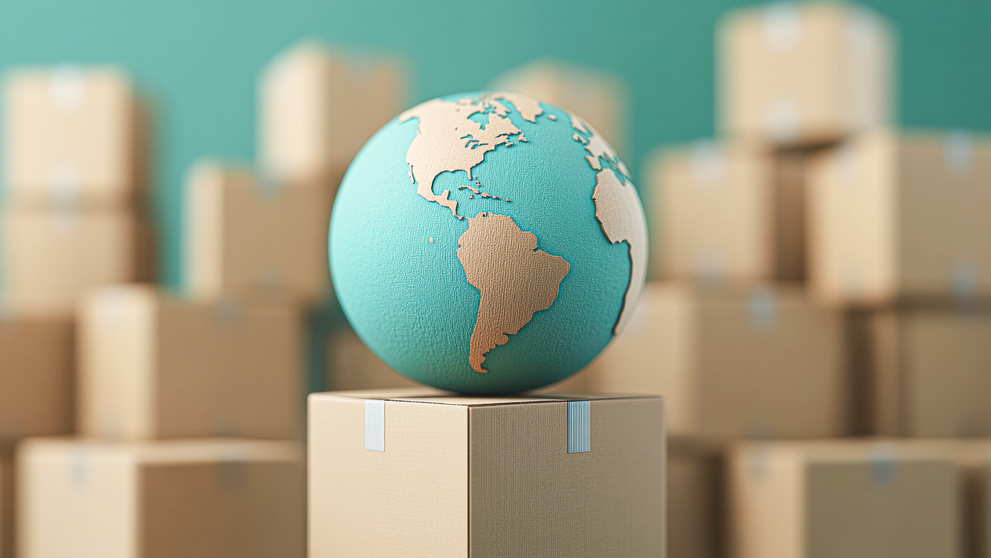Navigating U.S. Tariffs and Trade Regulations: Essential Insights for Businesses
As the new U.S. administration implements its trade agenda, businesses around the world are wondering how to adapt their shipping operations to all the changes. In this article, we’ll feature some of the answers to those concerns from our recent webinar, Navigating Uncertainty: How to Adapt to Shifting U.S. Trade Regulations. Whether you’re an importer or an exporter, gain insights into how new U.S. tariffs and trade policies will impact your business and learn how you can thrive in this changing landscape.
FAQ to Our Tariff and Trade Expert
If a shipment has left its origin and a tariff is imposed or changed, will the new tariff apply?
The short answer is no. While exceptions in specific cases may apply, if a shipment has left its place of origin, the tariff rules in place at that time it was shipped apply when it reaches its destination.
What best practices do you recommend for staying updated on changing trade regulations?
First and foremost, DHL Express is your trusted trade partner, and we’ve got our finger on the pulse as much as is possible. We’re happy to answer logistics questions and provide updates on the swiftly changing trade environment. For a comprehensive list of Customs updates, check out DHL’s Customs Regulatory Updates website.
How can exporters proactively adapt their pricing or sourcing strategies to remain competitive despite tariff fluctuations?
While DHL Express doesn’t offer specific and prescriptive advice on operating your business, I think the whipsaw nature of what has been seen thus far shows that nothing is permanent. The tariffs and the impact need to be taken seriously, but overreacting to them may cause its own harm. I think actions taken based on what’s best for the company should be the overriding principle. If said action carries short-term benefits, great. However, if longer-reaching pain points are the price for those short-term benefits, you’ll have to think if it’s worth it.
Will there be tariff exemptions for small businesses? How can I apply for these exemptions?
- Currently, there are no exemptions for businesses of any size. Going forward, I think there’s a decent chance that will change and an exemption/exclusion process will be opened under some of the tariff statutes, particularly if the economy continues to sputter and political difficulties set in.
- If any exemptions are implemented, it will be administered by the agency that manages the tariffs. Steel & Aluminum is run by the Commerce Department and the Section 301 China tariffs are run by the Office of the United States Trade Representative (USTR). Either way, once an exemption/exclusion process is implemented, DHL Express will have all the guidance you need.
Are there specific trade agreements or exemptions companies should explore to reduce costs?
- If your company imports or exports with a foreign country, it's wise to explore any existing bilateral or multilateral trade agreement the U.S. has with that nation. Using the United States-Mexico-Canada Agreement (USMCA) as an example, currently products compliant with that agreement (typically based on rules of origin) are delayed from being subject to the tariffs imposed by the Trump Administration. It must be noted that it is only in place until July 9th, though there may be further delays. These agreements may provide some level of protection.
- As previously mentioned, no tariffs implemented thus far have any exemption programs in place.
What are the future implications for trade with Europe, especially considering current tariff policies?
It’s certainly strained by the rhetoric and threats from the U.S. The EU was included in the pause of reciprocal tariffs, lasting theoretically until July 9th. President Trump said recently that the U.S. will achieve a trade deal with the EU. Whether or not that happens is at best a coin flip, but it certainly is a positive indication.
As a leading logistics provider, we possess the strategic agility and operational expertise to help our customers navigate these evolving complexities effectively. In summary, the actions of the United States are creating uncertainty and change, which is always scary. But DHL is better positioned than most others to help our customers adapt, and the close collaboration by my team with the divisions will help us to stay ahead of the curve once again.
We hope these answers will help your company adapt to this challenging environment. If you have a question that wasn’t answered in this article, watch the full webinar, visit our Customs Regulatory Updates site, or contact your DHL sales representative.
Navigating Uncertainty
Navigating Uncertainty
How to Adapt to Shifting US Trade Regulations
We will explore the implications of the new U.S. administration's trade policies and how businesses can effectively adapt and thrive in this evolving landscape. As the new administration starts to implement its trade agenda, understanding the potential changes and their impact on your business is crucial. This webinar will cover: - An overview of the administration's recent trade actions and policies - Key trends and shifts in the global trade environment - Strategies for businesses to prepare and adapt to these changes Host: Matthew Lavoie: Director of Government Affairs, DHL Express
Watch the WebinarDisclaimer: To promote a candid exchange, this is meant for educational purposes and not for attribution. All views expressed are those of the speakers. This presentation and discussion is for informational purposes only. It does not constitute regulatory or legal advice and shippers are recommended to seek their own legal or compliance counsel. DHL assumes no responsibility for the accuracy of the information contained herein and DHL does not provide specific regulatory or legal advice to customers unless contracted to do so.




